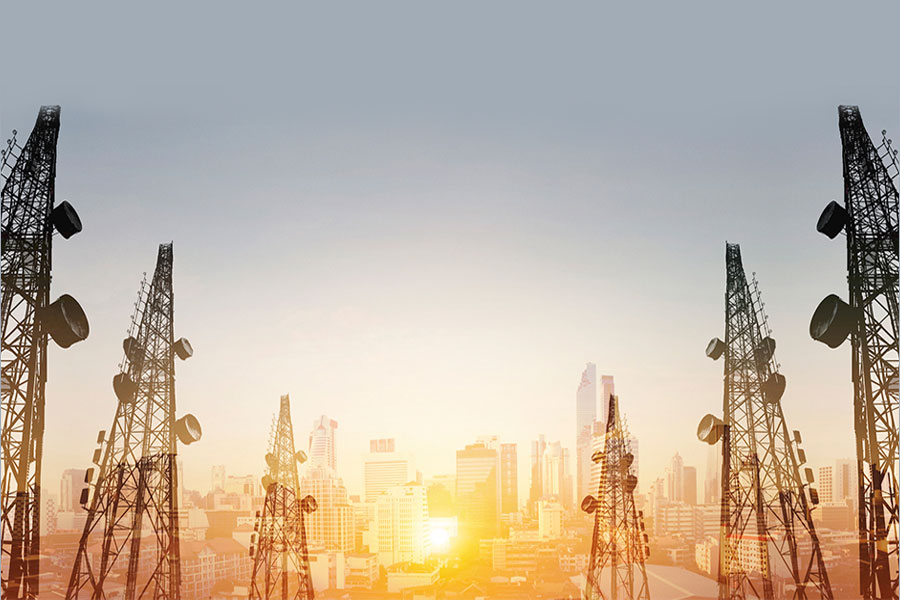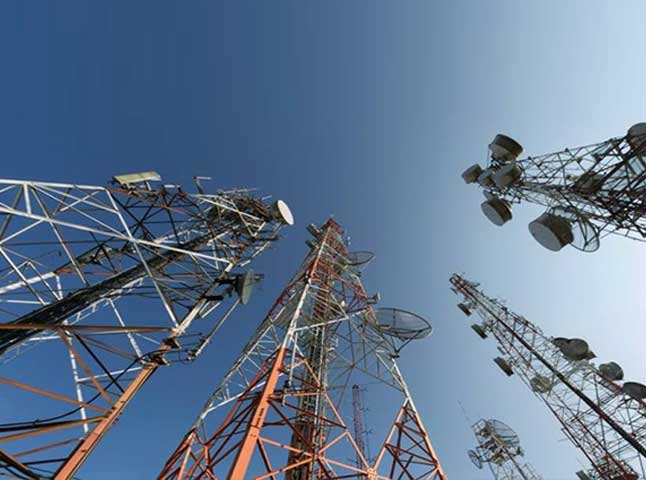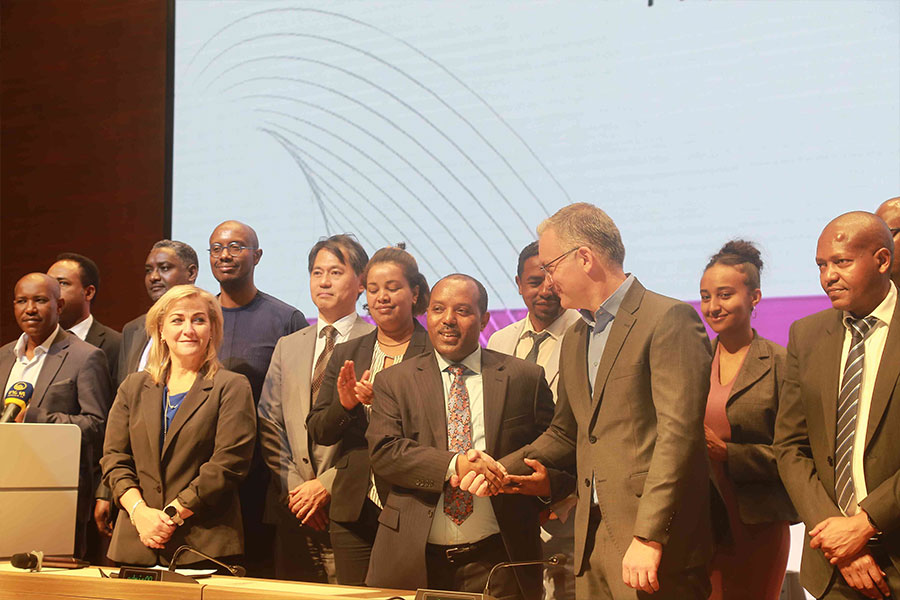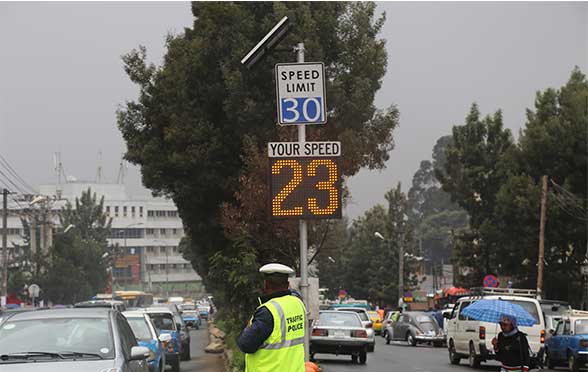
Fortune News | Jan 29,2022
Oct 31 , 2020
By BEMENET WONDEWOSSEN
 A local steel manufacturing company has made the first export of a telecommunications tower to Tanzania earlier this month.
A local steel manufacturing company has made the first export of a telecommunications tower to Tanzania earlier this month. A local steel manufacturing company has made the first export of a telecommunications tower to Tanzania earlier this month. The 45m tower was sold to Helios Towers, a UK-based telecommunications company.
Gatepro Steel Plc shipped the tower three weeks ago after securing the deal this May. The tower was manufactured at the company's plant located in Aqaqi Qaliti District that covers a 10,000sqm plot. The company started manufacturing towers for power transmission a few years back after going through an expansion.
The expansion was undertaken after the company secured a loan from the state policy bank, the Development Bank of Ethiopia (DBE). The company secured loans from the DBE that amount to 30pc of the project cost.
Despite being a high-risk project, the DBE got involved in this project due to its potential for a significant developmental impact, according to Nathanael Hailu, acting director of strategy, change and communications at the Bank.
Established 38 years ago with start-up capital of 45,000 Br, Gatepro Steel Plc has a production capacity of 40,000tn of steel and metal annually and employs 120 workers. The company started operations with the manufacturing of primarily warehouse metals, fuel tankers and tin roofs, and now it has expanded to the production of structural steel for electric power substations, pre-engineered steel buildings, free-span bridges, and, most recently, towers.
Following the initial stages of their production plan, the company made contact with Helios Towers, a British-owned subsidiary of IHS Towers, the largest mobile telecommunications infrastructure provider in Africa, Europe and the Middle East by tower count. Founded in 2009, Helios currently operates in five African countries, including Tanzania, the Democratic Republic Congo and Ghana.
The cost of manufacturing a tower is determined by the height of the tower, which can vary from 25m to 80m. The 80m towers are generally produced for use in mountainous places. Though the manufacturing sector has minimal impact on the total exports of the nation, metal processing is a significant industry in Ethiopia.
During the first quarter of this fiscal year, the export of metal and electronics generated 8.2 million dollars, a 20pc premium to the government's target.
The industry is beneficial, and the government should offer attention and support, according to Terrefe RasWork, a telecommunications expert. He cited Chinese telecom firms as a good example of government-backed success stories.
Ethio telecom deserves special government attention in the expansion of its infrastructure to compete with the international firms set to join the market after liberalisation, according to Terrefe.
The government is in the process of liberalising the telecommunications industry by letting two new telecom operators join the market. In letting the companies join the industry, it temporarily closed the doors for firms that manufacture or supply infrastructure, sometimes called "infraco" companies.
"The telecom industry needs to work with local companies like Gatepro to expand its tower count to accommodate the planned 5G network," Terrefe said.
Currently, the company started working with Ethio telecom in providing telecom towers in different sizes, according to Dawit Afework, vice president of the company.
"We plan to shift half of its total production toward exports," he said. "We're requesting additional land from the government since the current space is inadequate for our increasing production capabilities."
PUBLISHED ON
Oct 31,2020 [ VOL
21 , NO
1070]

Fortune News | Jan 29,2022

Viewpoints | Jul 08,2023

Exclusive Interviews | Mar 18,2023

Radar | Mar 04,2023

Fortune News | Oct 28,2023

Radar | Jan 22,2022

Fortune News | Aug 31,2019

Radar | Mar 23,2019

Commentaries | Sep 04,2021

Fortune News | Feb 08,2020

Dec 22 , 2024 . By TIZITA SHEWAFERAW
Charged with transforming colossal state-owned enterprises into modern and competitiv...

Aug 18 , 2024 . By AKSAH ITALO
Although predictable Yonas Zerihun's job in the ride-hailing service is not immune to...

Jul 28 , 2024 . By TIZITA SHEWAFERAW
Unhabitual, perhaps too many, Samuel Gebreyohannes, 38, used to occasionally enjoy a couple of beers at breakfast. However, he recently swit...

Jul 13 , 2024 . By AKSAH ITALO
Investors who rely on tractors, trucks, and field vehicles for commuting, transporting commodities, and f...

Jul 5 , 2025
Six years ago, Ethiopia was the darling of international liberal commentators. A year...

Jun 28 , 2025
Meseret Damtie, the assertive auditor general, has never been shy about naming names...

Jun 21 , 2025
A well-worn adage says, “Budget is not destiny, but it is direction.” Examining t...

Jun 14 , 2025
Yet again, the Horn of Africa is bracing for trouble. A region already frayed by wars...